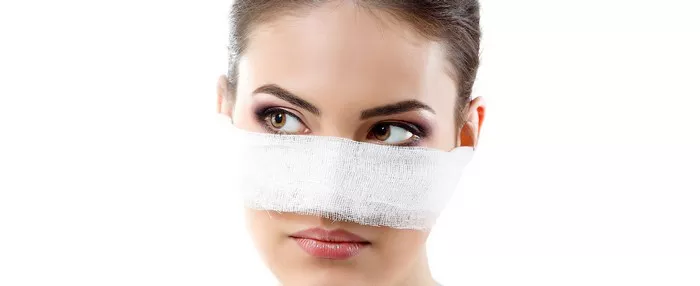Rhinoplasty is a surgical procedure that is used to reshape the nose. It is a popular cosmetic surgery that can help to improve the appearance of the nose and correct breathing problems. After rhinoplasty, it is important to follow your surgeon’s instructions to ensure a safe and successful recovery. One common question that patients have is how long after rhinoplasty can they sleep on their stomach. In this article, we will explore the answer to this question and provide tips for sleeping comfortably after rhinoplasty.
What is Rhinoplasty?
Rhinoplasty, also known as nose surgery, is a surgical procedure that is used to reshape the nose. It can be used to correct a variety of cosmetic and functional issues, including:
Crooked nose
Hump on the bridge of the nose
Wide or narrow nostrils
Bulbous or drooping tip
Breathing problems
During rhinoplasty, the surgeon will make incisions in the nose to access the underlying bone and cartilage. They will then reshape the nose to achieve the desired look or correct functional issues. After the surgery, the incisions will be closed and a splint or cast may be placed on the nose to help it heal in the proper position.
Sleeping After Rhinoplasty
After rhinoplasty, it is important to avoid sleeping on your stomach for a period of time. Sleeping on your stomach can put pressure on the nose and cause discomfort or even damage to the healing tissues. Your surgeon will provide specific instructions on when it is safe to sleep on your stomach based on the extent of your surgery and your individual healing process.
In general, most patients are advised to avoid sleeping on their stomach for at least two weeks after rhinoplasty. During this time, it is important to sleep on your back or side to avoid putting pressure on the nose. Sleeping on your back can also help to reduce swelling and promote healing.
Tips for Sleeping Comfortably After Rhinoplasty
Sleeping after rhinoplasty can be challenging, especially if you are not used to sleeping on your back or side. Here are some tips to help you sleep comfortably and safely after rhinoplasty:
Use pillows: Using pillows to prop up your head and elevate your upper body can help to reduce swelling and promote healing. You can also use pillows to support your arms and legs to help you stay comfortable.
Sleep on your back: Sleeping on your back is the best position to avoid putting pressure on the nose. You can use a travel pillow or rolled-up towel to support your neck and keep your head elevated.
Sleep on your side: If you are not comfortable sleeping on your back, you can try sleeping on your side. Use pillows to support your head and neck and keep your nose elevated.
Avoid sleeping on your stomach: As mentioned earlier, it is important to avoid sleeping on your stomach for at least two weeks after rhinoplasty.
Use a humidifier: Using a humidifier in your bedroom can help to keep the air moist and reduce nasal dryness, which can be uncomfortable after rhinoplasty.
Avoid caffeine and alcohol: Caffeine and alcohol can interfere with sleep and cause dehydration, which can be harmful after rhinoplasty.
Follow your surgeon’s instructions: Your surgeon will provide specific instructions on how to sleep after rhinoplasty based on your individual needs and healing process. Follow these instructions carefully to ensure a safe and successful recovery.
When to See Your Surgeon
If you experience any discomfort or complications after rhinoplasty, it is important to contact your surgeon right away. Some signs that you may need to see your surgeon include:
Severe pain
Bleeding
Fever
Difficulty breathing
Changes in vision or hearing
Worsening swelling or bruising
Your surgeon will be able to assess your symptoms and provide appropriate treatment or advice.
Conclusion
In conclusion, sleeping after rhinoplasty can be challenging, especially in the first few weeks after surgery. It is important to avoid sleeping on your stomach to prevent discomfort and damage to the healing tissues. Most patients are advised to avoid sleeping on their stomach for at least two weeks after rhinoplasty. Sleeping on your back or side can help to reduce swelling and promote healing. Using pillows, a humidifier, and avoiding caffeine and alcohol can also help to promote comfortable and safe sleep after rhinoplasty. If you experience any discomfort or complications after rhinoplasty, contact your surgeon right away. By following these guidelines, you can ensure a safe and successful recovery after rhinoplasty.


